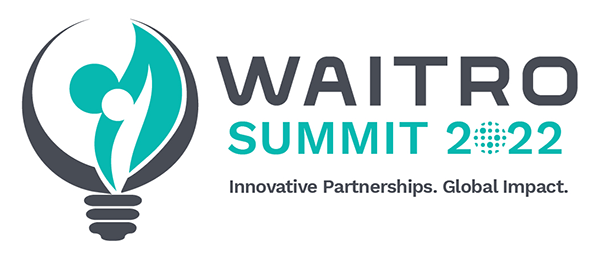
WAITRO Summit 2022
Workshop Tuesday 15 November 2022 / 11:00 – 12:30
Official Website www.waitrosummit.org
Project Cycle Management/Results Based Management – A focus on Monitoring and Evaluation in the context of the Inter-Connectivity of the Sustainable Development Goals and the Rights Based Approach. A South African Case Study.
Sessions
Session 1
Monitoring and Evaluation
SDGs and Human Rights
/Roger Short
Session 2
Introduction to IWRM
/Roger Short
A focus on the thinking behind the approach and introduce the various components. It emphasises the underlying elements of the SDGs – empowerment, engagement of everyone, monitoring.
Session 3
Community Driven IWRM
/Nik Wullschlegger
Implementing IWRM to empower previously marginalised communities to actively engage in local level IWRM and simultaneously contributing socio-economic development.
Session 4
Community Health Clubs
IWRM and the poorest of the poor
/Anthony Waterkeyn
Africa AHEAD is community Health Clubs in Umzimkulu Kwa-Zulu Natal Province. Cell phone technology to monitor community health in North West Province.
Session 5
Logistic Support
/Tshiamo Matabane
A focus on the backroom work with reconciling the Government system, procurement agent and engaging the NGOs.
Session 6
Resources
Session 7
Plenary
Description
Although there is a universal approach to PCM-LFA-RBM methodologies there are subtle differences between international agencies and the types of project/programmes. The UN 2030 Development Agenda and the associated Sustainable Development Goals are applicable globally[1] and are to be implemented adhering to the Rights Based Approach[2]. These concepts may be alien to technically oriented staff, but the principles will have an impact on their work, in particular how they design, monitor and evaluate projects. In particular, how to appreciate the inter-connectivity within and between SDGs and their targets. Concrete examples of approaches and methods will be drawn from the Danida supported Integrated Water Resources Management (IWRM) programme in South Africa.
Participants to this workshop will be able to inter-act with stakeholders and key actors of the IWRM programme which ran from 2000-2010 which, in addition to water conservation and ground water policies, implemented over 100 community driven projects utilising the principles of the rights-based approach.
The Rational for the session
IWRM started in 2000, effectively the first year of the 15 years of the MDGs. Notwithstanding this, we introduced a bottom-up participatory approach to the institutional and capacity-building components of the Danida-funded programme, effectively the Rights-based approach, which is fundamental to the implementation of the SDGs. Without going into too much detail, the methodology was based on experiences in the 1980s with the Results Orientated Training approach tested with the ILO in South East Asia and later participatory methods with converting military personnel in Belarus (UNDP) and the Social Impact of Closing Chornobyl (EU under the auspices of the G7 Nuclear Safety Working Group). Fundamental to the approach is the focus on the end beneficiary, understanding their needs, capabilities and constraints. In the context of the SDGs, it requires training within Ministries, local authorities and even institutions such as WAITRO members to appreciate this paradigm shift of listening, not telling. And to use the terminology of fiction and screenplay writing, “Show Don’t Tell”.
This turns upside down how we approach capacity building/empowerment at the lowest possible level to achieve the SDGs. Above all, to develop project interventions, such as EU Horizon, which genuinely contribute to the implementation of the SDGs within the spirit of the Guiding Principles for the United Nations Development Cooperation Framework.[3]
This session will emphasise the inter-relationship between SDGs
For example, IWRM is a specific target in the SDGs, Target 5 under SDG 6. IWRM is also a means of achieving results across all goals and 59 out of all 169 targets.
Who should attend?
The session will be of interest to those involved in or wishing to understand more about:
- Project design from an SDG and Human Rights Based perspective, especially at community level and in collaboration with other stakeholders
- Monitoring and Evaluation from an SDG and Human Rights Based perspective
Follow up
- Depending on demand, a follow-up on-line programme will be offered to WAITRO members. This will cover Results Based Management from an SDG and Human Rights Based perspective in relation to projects/programmes for submission to international agencies, in particular the European Union and selected UN Agencies
[1] See for example: DELIVERING ON THE UN’S SUSTAINABLE DEVELOPMENT GOALS– A comprehensive approach Introduction paras: The European Commission remains committed to the 2030 Agenda. Under the leadership of President von der Leyen, the Commission has presented an ambitious policy programme to deliver on sustainability in the EU and beyond. The SDGs are an intrinsic part of the President’s political programme6 and lie at the heart of the policymaking on internal and external action across all sectors.) https://ec.europa.eu/info/sites/default/files/delivering_on_uns_sustainable_development_goals_factsheet_en.pdf
[2] DIANOVA INTERNATIONAL Statement to the Human Rights Council intersessional meeting for dialogue and cooperation on human rights and the 2030 Agenda January 2019 A Human-Rights Based Approach to the SDGs Transforming goals and aspirations into rights: the role of human rights systems in the Agenda 2030 for Sustainable Development
[3] UNITED NATIONS SUSTAINABLE DEVELOPMENT COOPERATION FRAMEWORK Internal Guidance https://unsdg.un.org/sites/default/files/2022-06/UN%20Cooperation%20Framework%20Internal%20Guidance%20–%201%20June%202022.pdf
Post Summit Discussion Groups
STI4SDGs
& Localising SDGs
STI-SDGs – Champions
Discussion on how WAITRO members can take a pro-active role in creating vertical and horizontal linkages to create community and youth STI- SDG Champions
Awareness & Projects
Follow-up on Monitoring and Evaluation in the Context of SDGs and Rights
Discussion group